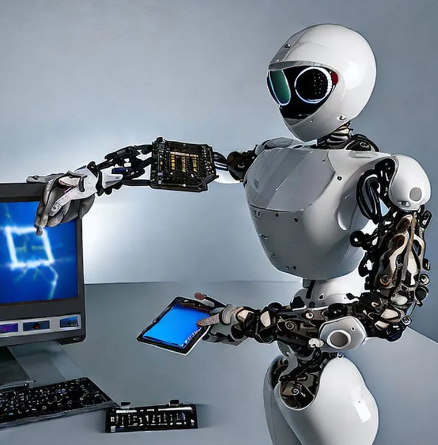Understanding Artificial Intelligence: The Future is Now
Artificial Intelligence (AI) has become an integral part of our daily lives, reshaping industries and transforming the way we interact with technology. From virtual assistants to advanced analytics in business, AI can offer profound benefits, making it more relevant than ever for individuals and organizations alike. This blog post will delve into the core aspects of AI, exploring its types and applications as well as its impact on society.
Types of Artificial Intelligence
AI can generally be classified into two main types: Narrow AI and General AI. Narrow AI, or Weak AI, is designed for specific tasks, such as voice recognition in smartphones or chatbots that provide customer support. These systems are incredibly proficient at their designated tasks but lack the ability to operate beyond their programming. On the other hand, General AI, or Strong AI, aims to replicate human cognitive abilities. While we have not yet achieved General AI, ongoing research in this field promises exciting possibilities for the future, making it a hot topic for technologists and enthusiasts alike.
Practical Applications of AI
AI is already making waves in various sectors, with applications that enhance efficiency, accuracy, and decision-making. In healthcare, AI algorithms analyze medical data to assist physicians in diagnosing diseases faster and more accurately. In finance, machine learning models predict market trends, helping investors make informed decisions. Transportation is also witnessing a transformation with self-driving vehicles that utilize AI for navigation and safety. As businesses increasingly harness AI technology, it is crucial for individuals to understand these advancements and how they may affect their careers and daily lives.
The Social Impact of AI
The rise of AI brings both opportunities and challenges in terms of job displacement and ethical considerations. While AI can augment human capabilities, there is a genuine concern about automation replacing jobs, particularly in manufacturing and clerical work. This emphasizes the need for reskilling and upskilling the workforce to adapt to new roles that AI cannot fulfill. Additionally, ethical questions arise regarding data privacy, bias in AI algorithms, and accountability for AI decisions. Engaging in discussions about these issues is essential so that society can collectively navigate the complexities AI presents.
Conclusion
Artificial Intelligence is not just a trend; it’s a fundamental shift in how we operate and communicate. By understanding its types, applications, and societal implications, we can better prepare for the future. Whether you’re a student, professional, or simply curious, there’s plenty to explore in the realm of AI. Dive deeper into this fascinating subject, and consider how you can leverage its potential in everyday life or your career. Remember, the future belongs to those who embrace technology!

